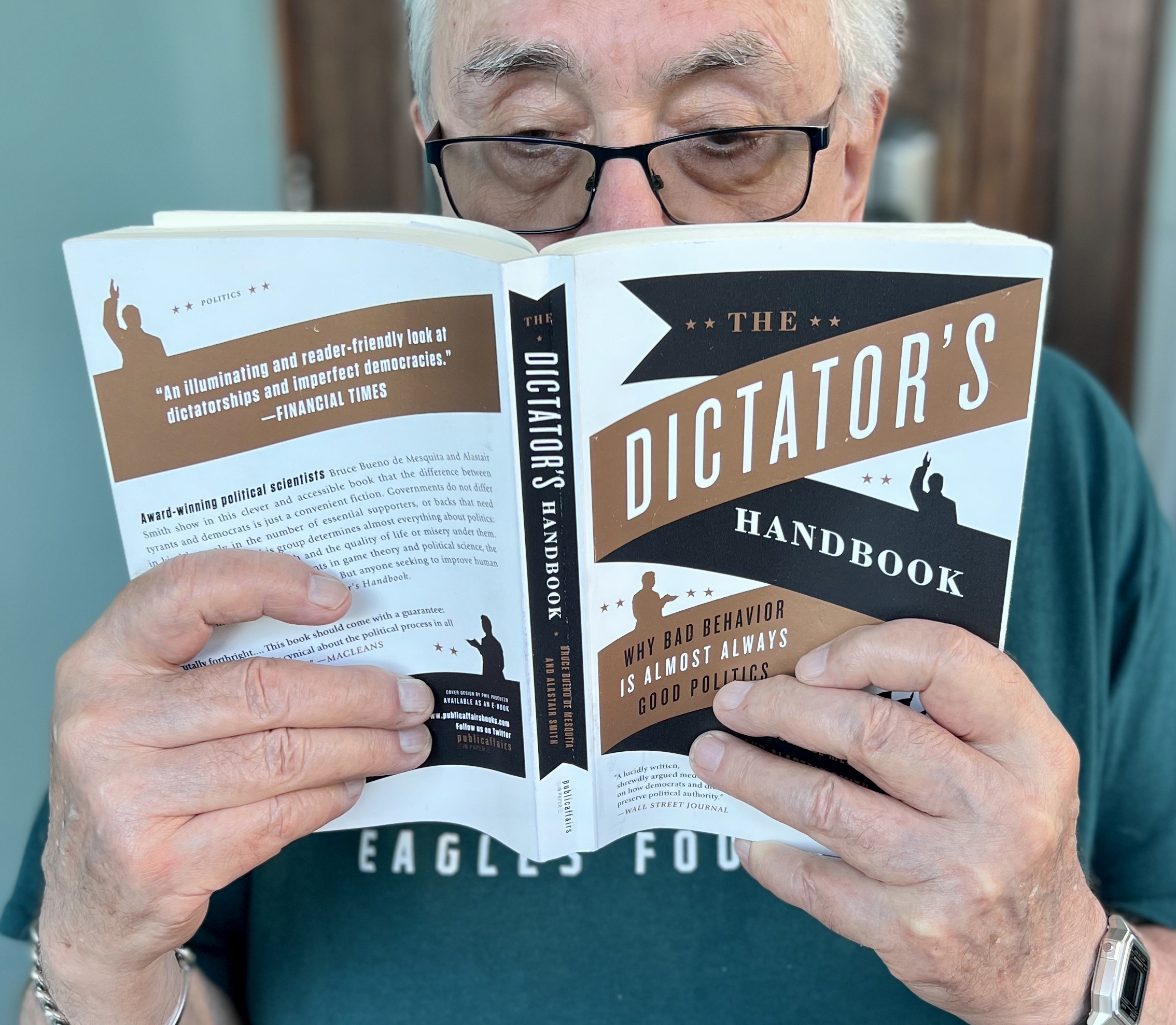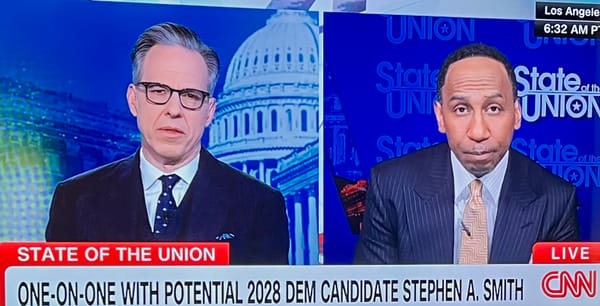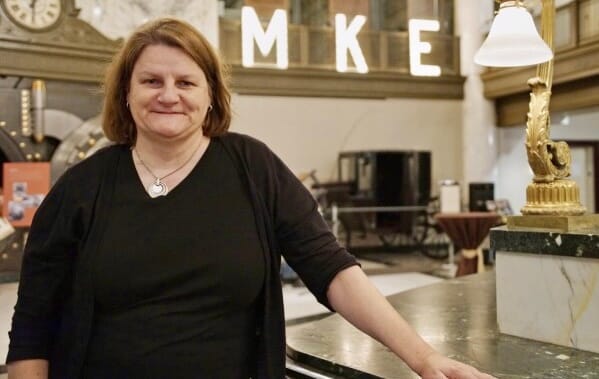The most cynical book in the world
At the recommendation of friends, I took a book on my recent vacation.
The book, “The Dictator’s Handbook: Why Bad Behavior is Almost Always Good Politics,” is the most cynical nonfiction I have read, drawing parallels between how democracies and autocracies operate.

But. . . Authors Bruce Bueno de Mesquita and Alastair Smith provide themselves with a fig leaf — the word “almost” in the title.
I’ll give them kudos for scholarly research — ranging from Biblical times to France’s Louis XIV to Liberia’s Samuel Doe, to far-flung corners of the Earth — to win their case, even though they sometimes miss the obvious.
“How do tyrants hold on to power for so long?” they ask, and “why is the tenure of successful democratic leaders so brief?”
Have they not heard of elections? And leaders in democracies often are term-limited.
The premise of the book is that all leaders are guided by the same North Star — to gain and keep power, no matter what.
And to do that, they reward their friends and punish their enemies, although they never use those terms.
“The self-interested calculations and actions of all rulers are the driving force of all politics,” they say. “We look at politicians as self-interested louts.”
Way too broad. It may be true of many, even most, but not all.
The authors don’t allow for selflessness, acting against personal interests. Books have been written about such people.
I don’t believe patrician millionaire Franklin Delano Roosevelt was motivated by self-interest. Ditto John F. Kennedy. Neither was Mahatma Gandhi. Not Bernie Sanders, Golda Meir, or John Fetterman, for that matter. Each wanted power, yes, but to do good for the most people, as they saw it.
The authors do introduce a novel way of analyzing how power is assembled and kept.
Beginning with the idea that “bad behavior is more often than not good politics,” the bok opens with the stunning case of Bell, CA., which you may have heard about for setting stunning new standards in political corruption.
The authors return to it several times in the book, as if it were normal, rather than abnormal.
In brief, leaders of the Los Angeles suburb of 36,000 — one-quarter living below the poverty line — looted the treasury, paying the manager $787,000 a year. The mayor of New York is paid $258,750. The mayor of Los Angeles is paid $248,141.
So how is it possible Bell city manager Robert Rizzo was paid so much?
The answer is simple: Few Bell people voted. Only a quarter of registered voters bothered to vote, and registered voters represented only a quarter of the city’s population. So 1/18th of residents made the decisions.
It wasn’t that Rizzo's bad behavior was good politics. He showered enough of the City Council with money to keep him rolling in dough. Bankrupting his town was not good politics.
Here’s where we get to the power analysis.
The authors say leaders must pay attention to three groups: Interchangeables (the general electorate, the largest group), Influentials (the active electorate), and the Essentials (the smallest, most powerful group).
Using Bell as an example, the Interchangeables were the 9,395 registered voters; the Influentials we're the 2,335 people who actually voted); and the Essentials were the 473 who delivered the margin of victory.
The book is both wordy and conversational, sometimes beating a point to death.
It doesn’t come as news to anyone that leaders -- politicians or CEOs or baseball managers -- take care of their own first, and sometimes alone.
Lord Acton was essentially right when he wrote that “All power tends to corrupts. Absolute power corrupts absolutely.” Abraham Lincoln observed ”if you want to test a man’s character, give him power.”
It reminds me of Mayor Frank Rizzo’s response when a reporter accused him of giving jobs to his friends.
“Do you expect me to give jobs to my enemies?” Rizzo wisecracked.
The correct answer would be to give jobs to the best qualified person.
Democrats have rewritten the rules a bit, to favor find any kind of minority. That would account for, as examples, the selection of semi-Black Kamala Harris as Vice President, transgender Robert Rachel Levine as assistant HHS secretary, and gay-Black-immigrant Karine Jean-Pierre as press secretary. Wow -- she checks three boxes,
These nominees would satisfy Influentials, rather than Interchangeables, or Essentials, I think. In other words, the woke element of the Democratic base.
On the other side, MAGA people are the Influentials.
If the authors believe leaders -- whether autocratic or democratic -- will always behave badly, why should we bother voting, other than to elect the lesser of two evils?
So, what is the answer? The last chapter is headed, “What is to be done?”
The authors do not offer a simple, direct solution.
But if you dig through the verbiage, eventually you will find that freedom is a key component in a state’s health and wealth. The larger the base of Interchangeables, the better off we are, assuming the Interchangeables, , a.k.a. the EveryManPerson, actually bothers to vote.



